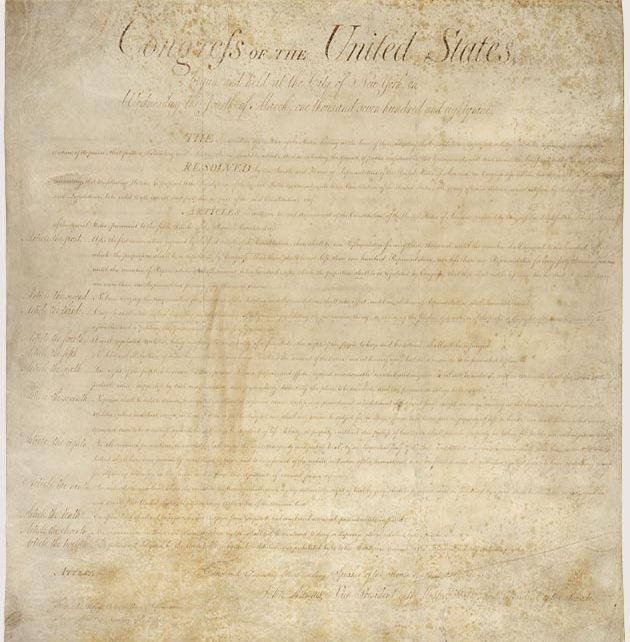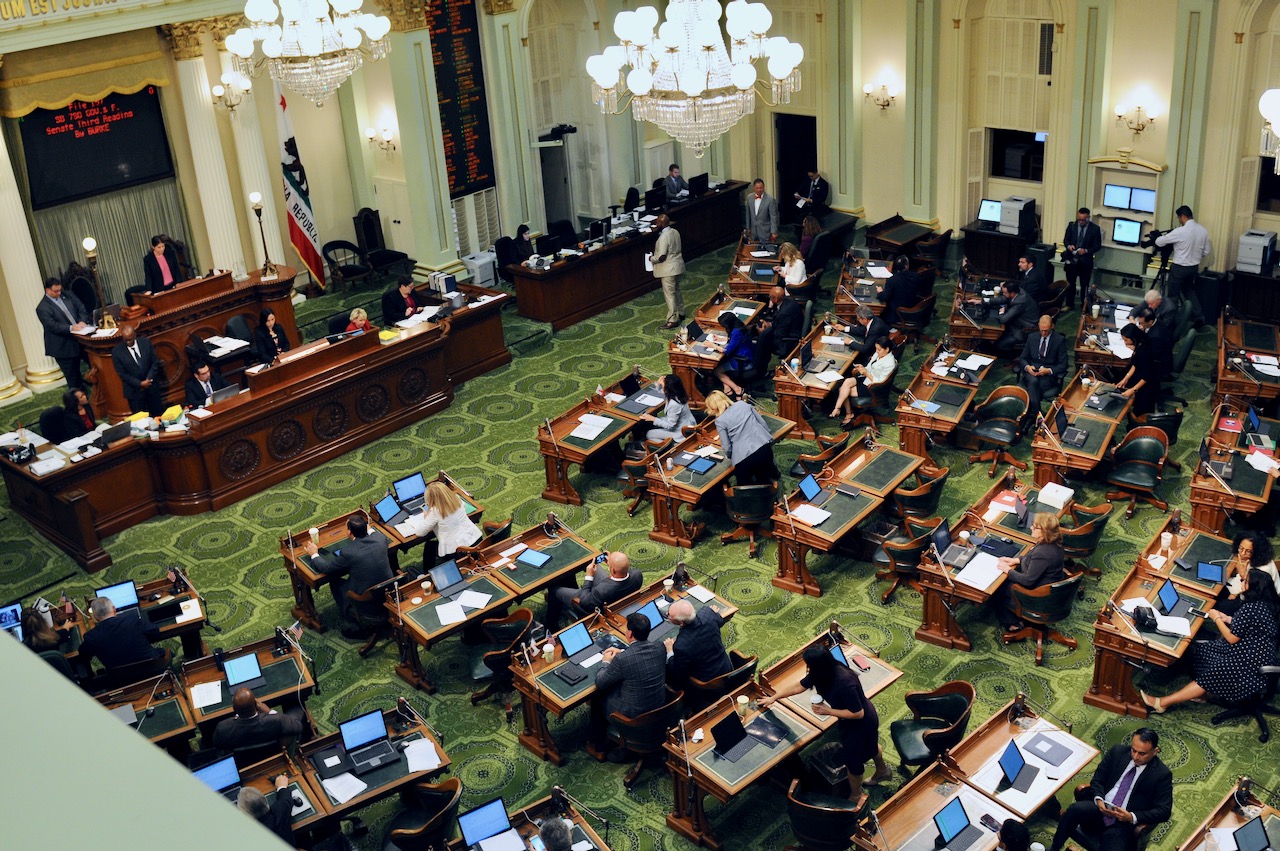
United States Constitution. (Photo: archives.gov)
Federal Constitutional Limitations on the California Legislature
The U.S. Constitution contains a number of express limitations on state sovereignty in Article 1
By Chris Micheli, February 13, 2023 1:16 pm
When drafting and considering bills in the California Legislature, bill drafters and legislators in this state need to be aware of some of the limitations on state legislatures imposed by the federal Constitution.
The United States Constitution is generally viewed by legal commentators as granting powers to the U.S. Congress, while the Constitution of California is viewed as one providing limitations on the legislative power. The 10th Amendment to the federal Constitution provides that all powers not delegated to the United States nor prohibited to the states are reserved to the states.
Perhaps the most important limitation on state legislatures is found in Article VI of the federal Constitution, which provides: “This Constitution, and the laws of the United States which shall be made in pursuance thereof, and all treaties made or which shall be made, under the authority of the United States, shall be the supreme law of the land; and the judges in every state shall be bound thereby, anything in the Constitution or laws of any state to the contrary notwithstanding.” This is the Supremacy Clause.
Article I, Section 8 of the U.S. Constitution specifies the powers reserved to Congress. As a result, this provision limits the power of the states to enact laws in those areas reserved to the federal government. Included in this list are items such as the regulation of interstate commerce, bankruptcy, and immigration.
Article IV requires each state to give full faith and credit to the laws and judicial proceedings of those of other states. In addition, Article IV requires citizens of each state to have all privileges and immunities of citizens of other states.
The U.S. Constitution contains a number of express limitations on state sovereignty in Article 1, Section 10, including prohibitions on states from entering into treaties, granting letters of marque and reprisal, coining money, providing bills of credit, passing any bills of attainder, ex post facto law, or law impairing the obligation of contracts, granting any title of nobility.
Finally, Article I, Section 4 limits state control of elections for United States Senators and House Representatives by requiring that state legislation be subject to regulations passed by Congress.
- Frequently Asked Questions about Privileges of Voters in California - April 23, 2024
- Does a Bill Need Statutory Construction Guidance? - April 22, 2024
- Frequently Asked Questions about Lobbying Support Services - April 22, 2024





One thought on “Federal Constitutional Limitations on the California Legislature”